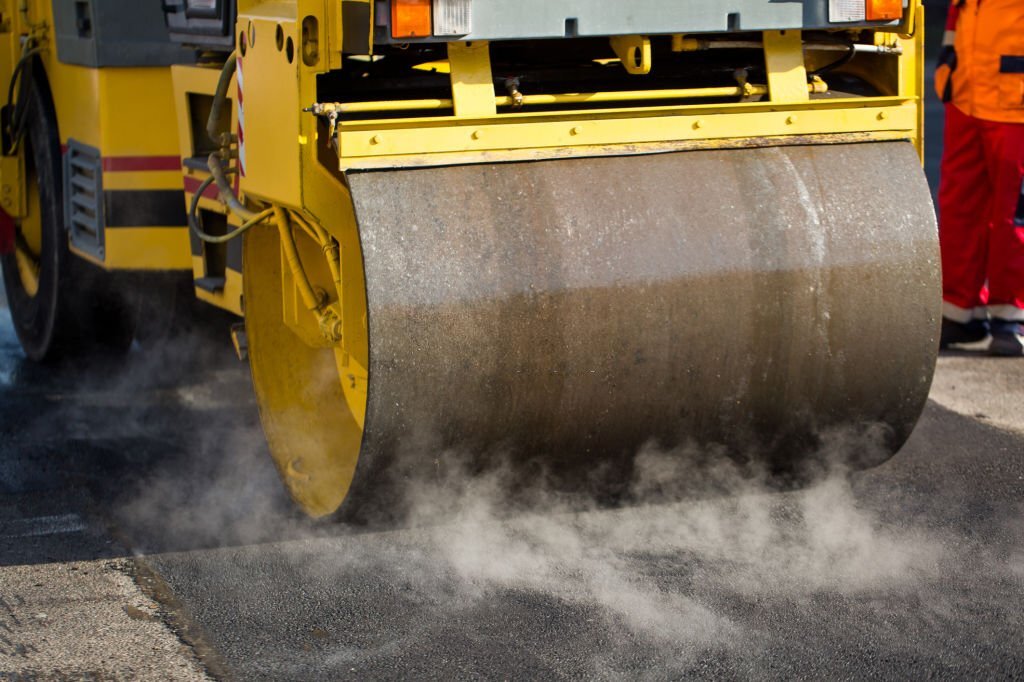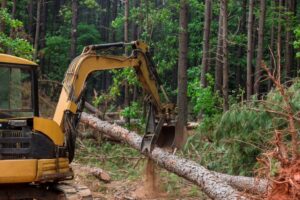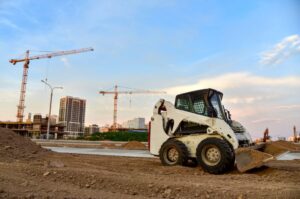
Operating compactors in heavy equipment comes with inherent risks that demand strict adherence to safety measures to ensure the well-being of operators and construction personnel. As these powerful machines are used for soil compaction and road construction, potential hazards must be carefully addressed to prevent accidents and promote safe working conditions on construction sites. In this comprehensive article, we will explore the essential safety measures that should be taken when operating compactors in heavy equipment. From providing personal protective equipment to conducting thorough operator training, implementing site inspection procedures, and establishing emergency protocols, construction professionals can create a safe working environment and mitigate risks associated with compactors.
1. Personal Protective Equipment (PPE)
Safety Gear: Operators and construction personnel must wear appropriate PPE, including helmets, safety glasses, high-visibility vests, gloves, and steel-toed boots.
Respiratory Protection: In situations where dust or harmful fumes are generated, respiratory protection should be provided.
2. Operator Training and Certification
Formal Training: Compactor operators should undergo comprehensive training, including the safe operation, maintenance, and troubleshooting of the equipment.
Certification: Operators must be certified to ensure they possess the necessary skills and knowledge to operate compactors safely.
3. Machine Inspection and Maintenance
Pre-Operation Inspection: A thorough inspection of the compactor should be conducted before each operation to check for any issues or malfunctions.
Regular Maintenance: Regular maintenance of the compactor is essential to keep it in proper working condition and prevent mechanical failures.
4. Safe Operating Practices
Operating Procedures: Operators should strictly follow the manufacturer’s operating procedures and guidelines.
Safe Speeds: Compact at safe speeds, especially when turning or working on slopes.
5. Site Inspection and Preparation
Site Assessment: Conduct a site assessment to identify potential hazards and plan safe operating procedures.
Clear Communication: Establish clear communication protocols between operators and ground personnel to prevent accidents.
6. Environmental Considerations
Soil Type: Different soil types may require varying levels of compaction effort and technique.
7. Working Near Personnel and Traffic
Clear Zones: Establish clear zones around the compactor to keep personnel and other equipment at a safe distance.
Traffic Control: Implement traffic control measures to prevent accidents involving construction vehicles and pedestrians.
8. Emergency Protocols
Emergency Response Plan: Have a well-defined emergency response plan in place for accidents or equipment failures.
First Aid Training: Ensure that personnel on-site are trained in first aid to provide immediate assistance in case of an emergency.
9. Avoiding Overloading
Weight Limitations: Do not exceed the recommended weight limitations for the compactor.
Compaction Depth: Avoid excessive compaction depth to prevent overloading the machine.
10. Avoiding Rollover Accidents
Slopes and Inclines: Be cautious when operating compactors on slopes or inclines to prevent rollover accidents.
Traction and Stability: Ensure proper traction and stability of the compactor on various terrains.
Conclusion
Safety is paramount when operating compactors in heavy equipment, and adherence to strict safety measures is vital to prevent accidents and promote safe working conditions on construction sites. By providing personal protective equipment, conducting comprehensive operator training, implementing site inspection procedures, and establishing emergency protocols, construction professionals can create a secure environment for compacting operations. Additionally, regular machine inspection and maintenance, adherence to safe operating practices, and awareness of environmental and traffic considerations further enhance safety during compactor operations. With a strong commitment to safety and continual training, the construction industry can mitigate risks and ensure that compactors are operated responsibly and efficiently, safeguarding the well-being of operators and personnel alike.



